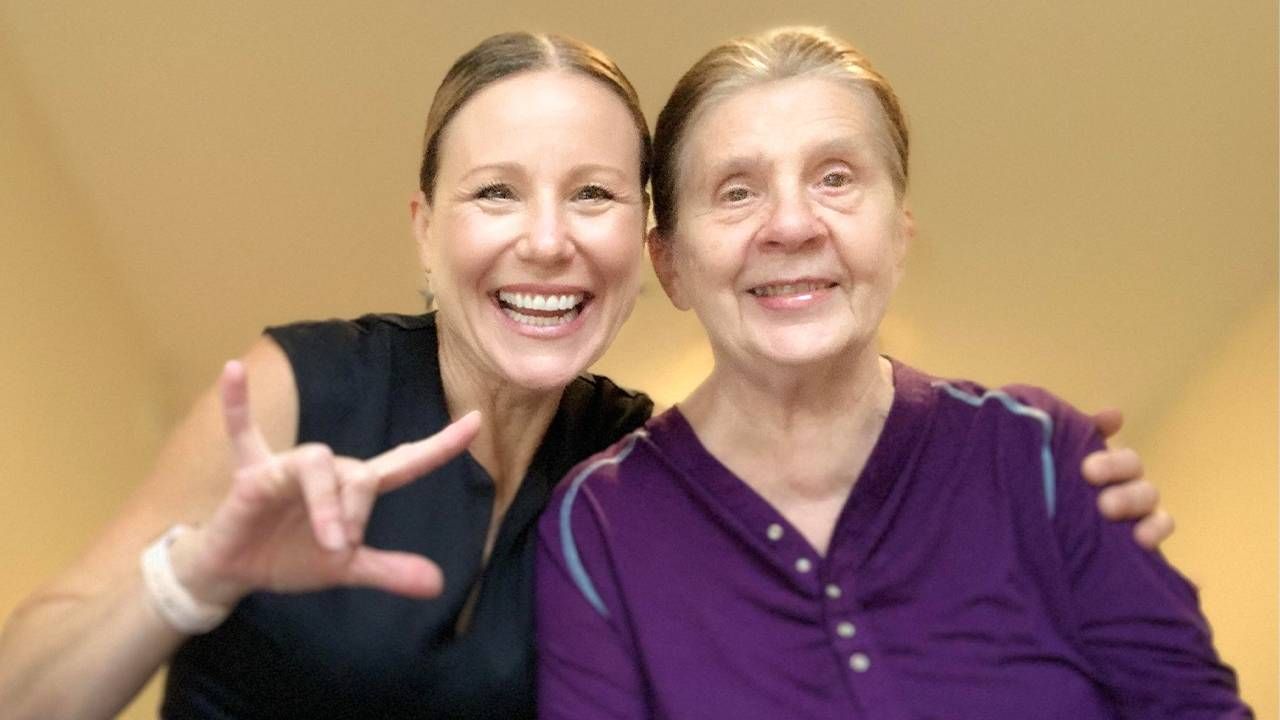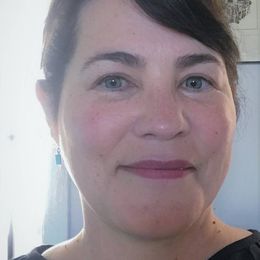Finding the Best Care for Her Deaf Mother with Dementia
A CODA (Child of Deaf Adults) talks about the struggles of locating a place where her mother would be comfortable
Editor’s note: “Deaf” with a capital letter “D” signifies a deaf person who’s immersed in deaf culture and uses sign language as their primary mode of communication. Lowercase “deaf” simply means someone who is medically deaf. For this story, “Deaf” will be used throughout, as MJ Grant identifies her mother, Carmen, as Deaf.
It was in 2009 when MJ Grant, a child of deaf adults (CODA), got the first hint that her mother Carmen's memory was declining. At the time, Carmen was living with and caring for Grant's grandmother, who had dementia.

On a cold night, Carmen had uncharacteristically forgotten to wear her pager to alert her that her mother had wandered outside and fallen on the pavement. Somehow, Carmen sensed something was wrong and woke up to find her mother outside. She then carried her mother into the house and called a relative for help.
A Diagnosis for Her Mother
By 2010, Grant noticed that Carmen's own memory issues were becoming more obvious and that Carmen could no longer care for Grant's grandmother.
"I was living two and a half hours away, raising a family and working full time, so it wasn't easy to continuously advocate for my mother's communication access needs."
A series of tests, including a CAT scan, showed that Carmen had suffered a chain of mini strokes sometime prior, which likely caused her vascular dementia. Carmen was to have cognitive testing, but Grant knew the testing was not designed with Deaf people in mind.
"I was living two and a half hours away, raising a family and working full time, so it wasn't easy to continuously advocate for my mother's communication access needs," Grant said. "I attended the appointment with my mother and interpreted the test as best as I could."
Children of parents who don't speak the native language sometimes interpret for their parents in medical settings, although according to the Americans with Disabilities Act, hospitals need to provide effective means of communication for patients. But in Grant's case, although she is an adult and a qualified interpreter, due to the constant roadblocks she was encountering with doctors resistant to providing equal access for Carmen, Grant was left with no choice but to step in and interpret for her mother.
In 2016, Carmen came to live with Grant and her husband and four children in their Sanford, Maine home. A year later, she moved to a memory care facility 20 minutes away.
But at the memory care facility, Carmen was the only Deaf person and she had no one to talk with. Soon, social isolation set in.
"I went to social media to ask for the Deaf community's support in visiting with my mother," Grant said. The local Deaf community rallied, and several people who knew sign language came to visit Carmen.
However in 2017, Grant — who had been paying out of pocket for her mother's care — had to move Carmen back into her family's home. It would be an additional three years before Carmen became eligible for state-funded care.
Struggling to Find the Right Care
The hope of having her mother live her remaining years in the family home had dimmed by this time. Grant said she knew she wouldn't be able to rally for much longer because the strain had become too much, having to toggle between her children, her husband, her sign language interpreting business and her mother's care.
As a result, Grant's children struggled with sharing their time with Carmen. The household was fraught with tension and Grant found her situation becoming unmanageable, with both her and her husband working at home and having no outlet.
"Given the fact that I was the only one who could communicate with her in a meaningful way, I was the person who took on the responsibility for all of her care, which meant I spent less time with my youngest daughter," Grant said. "She began to resent my mother and it was becoming an unhealthy dynamic."
Grant had already witnessed Carmen's independence quickly waning. On top of this, Grant's mother-in-law was also diagnosed with dementia and had to move into the family home.
When Carmen became eligible for state-funded care, Grant had a difficult choice to make. Should she move her mother to a brand-new memory care facility that was opening just 1.5 miles from her home, one that wasn't equipped to accommodate Deaf people? Or should she move Carmen to the New England Home for the Deaf, located in Danvers, Massachusetts, two hours away?
"In August of 2021, she moved into the new memory care home nearby because I was cracking," Grant said, having decided it was important to keep her mother closer. "I felt incredible isolation and burnout." The burden of the pandemic had only added to Grant's stress level.
The Role of Communication
For a CODA, it's an excruciating struggle caring for a parent with dementia. About 5.8 million people in the U.S. suffer from dementia and Alzheimer's disease combined, leaving families struggling with caring for their affected loved ones. The situation is compounded when a deaf parent has dementia, as there are too few memory care centers with staff members fluent in sign language.
Growing up a CODA meant Grant spoke English and used ASL (American Sign Language).
"My mother grew up using spoken English as she was raised using the oral approach. She didn't learn to sign fluently until she attended Gallaudet University where sign language was the language of instruction," Grant said.
Hearing Loss and Dementia
A 12-year study indicates that hearing loss is a possible risk for dementia. The more severe the hearing loss, the higher the risk of a dementia diagnosis.
"There are no studies that I know of that confirm a higher risk of dementia for Deaf individuals."
However, an important distinction needs to be made between late-deafened people (people who experience hearing loss later in life) and those who are deaf from birth (congenital deafness).
Hope Lanter, lead audiologist for Hear.com, says that because people with congenital deafness don't have access to sound, "the dementia risk is not strongly correlated due to the brain not encountering a change in stimulation that occurs with late deafened adults."
However, congenitally deaf people do wear hearing aids and have access to some, or many, sounds. But there is apparently little to no research that has assessed the dementia risk for this marginalized group.
"There are no studies that I know of that confirm a higher risk of dementia for Deaf individuals," said Melissa Karp, a doctor of audiology with the Audiology & Hearing Services of Charlotte, located in Charlotte, North Carolina. "Members of the Deaf community have their own language with structure, syntax and interactions with others. You would also have to tease out other factors like genetics and socioeconomic status before making that determination."
The Bond Between Mother and Daughter Remains Strong
According to Grant, dementia hasn't stolen Carmen's joy for life. In fact, since her dementia diagnosis, she has become more open to trying new things and loves engaging with the memory care staff who are learning some signs and using gestures with her. She also has a Deaf friend who visits once a week and spends several hours with her.
Grant's TikTok account, @mjgrant, follows her visits with Carmen at the memory care facility where she lives.
Carmen frequently cradles a baby doll as if it were alive and during the COVID-19 lockdown, Grant would sign to her mother through the window and Carmen would tell her, "You're my baby" and show Grant photos of her two baby girls (Grant and her sister).
"She no longer realizes I am her daughter. However, when I hug her, she immediately says, 'Baby,'" Grant said. "She's doing it to everyone who hugs her now [but] it still makes me smile, because it shows the nurturing, beautiful soul that she is."
Grant is currently raising funds for a documentary film, "I Remember When" that tells the story of how Carmen's dementia has changed her relationship with her daughter, and aims to bring more awareness to Deaf families living with dementia.


